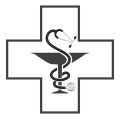Epilepsy
Epilepsy is a disease that causes occasional episodes of abnormal activity in the brain, which result in seizures. There are various types of seizure, but most common is vigorous shaking of the limbs associated with unconsciousness (known as a tonic clonic seizure).
Causes
Epilepsy usually has no identifiable cause, but instead is likely to be a genetically acquired disorder. For the person with epilepsy, various conditions may increase the likelihood of a seizure in some epileptics, such as sleep deprivation, increased stress, alcohol use, or non-compliance with medications. Flashing lights might precipitate a seizure in some epileptics. However, often no particular cause can be identified for the onset of seizure in the epileptic patient.
Signs and Symptoms
There are many different types of seizures, but the type most commonly seen in hospital is the tonic clonic seizure. This seizure begins with an abrupt loss of consciousness, followed by all of the muscles in the arms, legs and back becoming stiff. This usually lasts for approximately one minute. Following this, there is vigorous jerking of the limbs. Most seizures only last one or two minutes, however sometimes the seizure can be prolonged. A prolonged seizure (called status epilepticus) damages the brain cells, and can cause permanent brain injury.
Prior to an epileptic seizure, sometimes the patient may experience a strange sensation (this is called an aura). Examples of aura include an unusual feeling in the stomach, a feeling of fear, or an unpleasant smell, following which a seizure may occur. After a few episodes of this, the epileptic may learn to recognize this sensation, and view it as a warning sign for an impending seizure.
During a seizure the patient may have frothing at the mouth. Tongue biting is also common. Urinary of fecal incontinence may also occur.
After a seizure the patient remains unconscious. Gradually the patient recovers, but drowsiness and confusion can remain for some time. This postictal period usually lasts several minutes but can sometimes last several hours. Often the patient will complain of headache, and often is amnesic to the events.
Investigations
A blood glucose should be checked at the bedside. This is because hypoglycemia can be a cause of seizure, and is easily treated. Blood tests may be required, such as electrolyte levels (sodium, calcium, magnesium) and kidney function (urea and creatinine).
Once the patient has recovered from the postictal period, a detailed history must be taken and neurological examination performed. A thorough physical examination for injuries sustained during the seizure should also be performed.
Treatment
Benzodiazepines (such as diazepam) must be given during a seizure. The intravenous route is preferred, however intramuscular or rectal routine is acceptable if intravenous access is not possible. The dose should be repeated as required.
It is important not to restrain the patient that is seizing, but instead the environment must be made safe for them, such as removing furniture nearby and using pillows to protect the head.
If the seizure is prolonged then oxygen must be administered by face mask, and the oxygen saturation monitored. The patient should be turned onto the side (traditionally the left side) to allow secretions to drain freely out of the mouth, and to prevent aspiration.
If the seizure is not resolving with diazepam, then other anti-epileptic medications may be requires, such as intravenous phenytoin or intravenous phenobarbitol.
Once seizure activity ceases, the patient should remain in the recovery position. Suction may be required for oral secretions. It is important to maintain an open airway, and monitor oxygen saturations. Reassurance should be given during the recovery stage as amnesia can be frightening for some.
Long term management of epilepsy is controlled with daily anti-seizure medications. Anti-seizure medications prevent or reduce the number of seizures or decrease their severity. It is important to note that many of these anti-seizure medications have unwanted side effects, and some of them are harmful to the fetus in the pregnant female. Therefore the appropriate medication should be given to the patient.
Patients who suffer from epilepsy should impose driving restrictions on themselves to protect themselves and others. Other activities such as swimming, cooking and climbing also require careful consideration.
Non-epileptic Seizure
Seizures that occur due to an acute neurological injury or acute medical condition are not classed as epileptic seizures. Examples of non-epileptic seizures are:
- neurological infections (such as cerebral malaria, meningitis)
- hypoglycemia
- electrolyte imbalance (especially low sodium, calcium or magnesium levels)
- renal failure and uremia
- head trauma
- intercerebral hemorrhage and subarachnoid hemorrhage
- brain tumor
- hypoxia
- severe hypertension
- eclampsia
- alcohol withdrawal
- drug toxicity or other toxins
The above causes of non-epileptic seizure must always be searched for whenever a patient presents with seizure. Each cause requires specific investigations and treatment. Only once the above causes of non-epileptic seizure have been ruled out can the diagnosis of epilepsy be considered.


